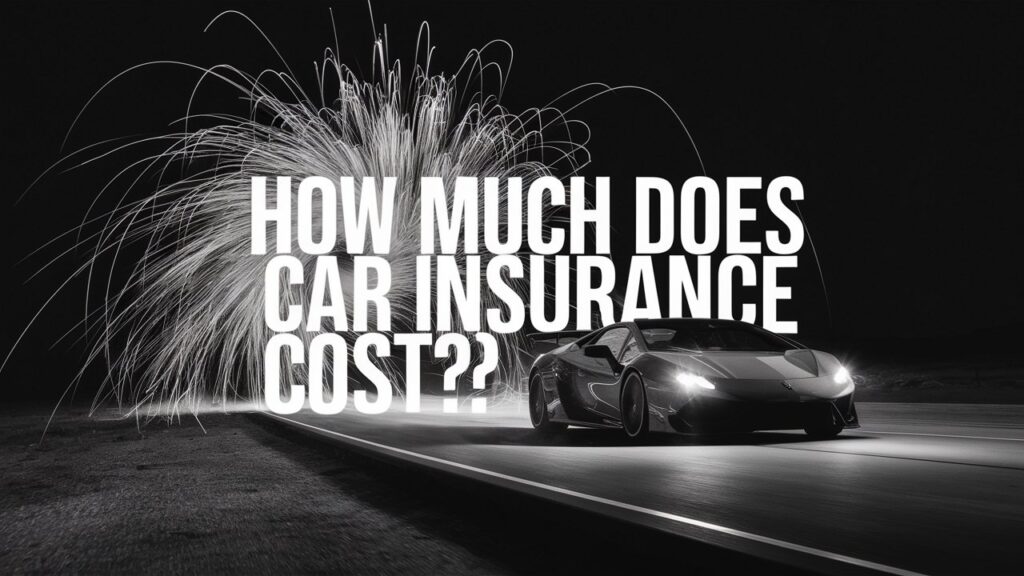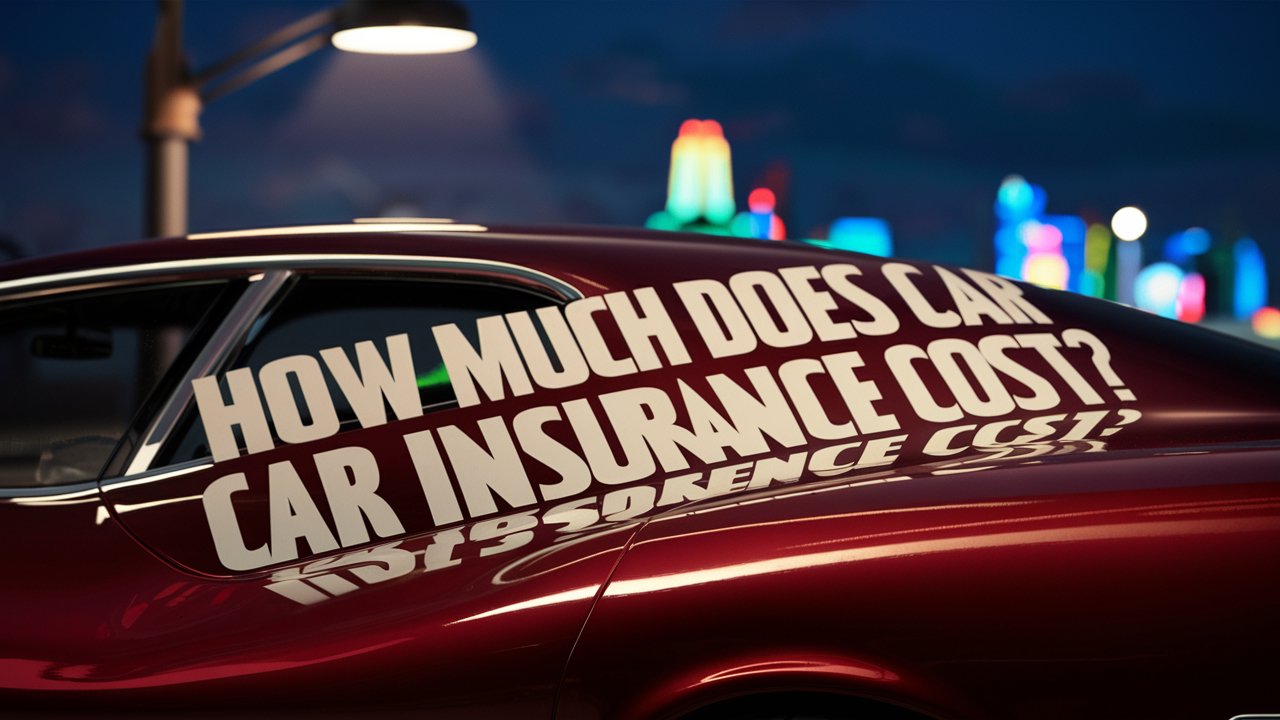Car insurance is an essential aspect of owning a vehicle, providing financial protection against accidents, theft, and other unforeseen events. However, the cost of car insurance can vary greatly depending on several factors. In this article (How Much Does Car Insurance Cost? A Comprehensive Guide), we’ll dive into the various elements that influence car insurance premiums, discuss average costs, and provide tips to help you save money on your car insurance.
Factors That Determine Car Insurance Costs
When calculating your car insurance premium, insurance companies consider a wide range of factors to assess your risk profile. Some of the most significant factors include:
- Age and Gender: Younger drivers and male drivers typically pay higher premiums due to their increased likelihood of being involved in accidents. As drivers age and gain more experience, their premiums generally decrease.
- Driving Record: A clean driving record with no accidents or traffic violations can lead to lower premiums, while a history of accidents or violations will likely result in higher costs.
- Location: Where you live plays a significant role in determining your car insurance rates. Urban areas with higher population densities and crime rates often have higher premiums compared to rural areas.
- Vehicle Type: The make, model, and age of your vehicle can greatly impact your insurance costs. Expensive, high-performance, or luxury vehicles are typically more costly to insure due to higher repair or replacement costs. Safety features and anti-theft devices can help lower premiums.
- Coverage Level: The level of coverage you choose will directly affect your premium. Opting for higher liability limits, comprehensive coverage, or collision coverage will increase your costs, while choosing a higher deductible can lower your premium.
- Credit Score: In many states, insurance companies use credit scores as a factor in determining premiums. Maintaining a good credit score can help you secure lower rates.

Average Car Insurance Costs
The average cost of car insurance can vary significantly based on the factors mentioned above. The table below shows some average annual premiums for different demographics and vehicle types:
| Driver Profile | Average Annual Premium |
|---|---|
| Young driver (age 16-25) | $2,500 – $3,500 |
| Adult driver (age 26-60) | $1,200 – $2,000 |
| Senior driver (age 61+) | $1,000 – $1,800 |
| Driver with a clean record | $1,000 – $1,500 |
| Driver with one accident | $1,500 – $2,500 |
| Driver with one traffic violation | $1,300 – $2,000 |
| High-risk driver (e.g., DUI, multiple accidents) | $3,000 – $5,000+ |
Please note that these are rough estimates and actual costs may vary based on individual circumstances and location.
Tips to Save on Car Insurance
While car insurance can be expensive, there are several strategies you can employ to reduce your premiums:
- Shop Around: Compare quotes from multiple insurance providers to find the most competitive rates.
- Bundle Policies: Many insurers offer discounts for bundling multiple policies, such as combining your car insurance with your homeowners or renters insurance.
- Increase Your Deductible: Choosing a higher deductible can lower your monthly premium, but ensure you can afford the out-of-pocket expense in case you need to file a claim.
- Maintain a Good Credit Score: In states where credit scores are used to determine rates, maintaining a good credit score can help you secure lower premiums.
- Take Advantage of Discounts: Many insurance companies offer discounts for factors such as having a clean driving record, installing anti-theft devices, or completing a defensive driving course.
- Drive Safely: Avoiding accidents and traffic violations can help you maintain a clean driving record, which can lead to lower premiums over time.
- Choose Your Vehicle Wisely: When purchasing a vehicle, consider the potential insurance costs. Cars with high safety ratings, low theft rates, and affordable repair costs tend to have lower insurance premiums.
Frequently Asked Questions (FAQs)
- What is the minimum car insurance coverage required by law?
- The minimum car insurance coverage varies by state. Most states require liability coverage, which covers damages or injuries you cause to others in an accident. Check with your state’s department of motor vehicles or insurance commissioner for specific requirements.
- How can I find the cheapest car insurance?
- To find the cheapest car insurance, compare quotes from multiple providers, take advantage of discounts, maintain a clean driving record, and consider raising your deductible. Remember that the cheapest option may not always provide the best coverage for your needs.
- Do I need comprehensive and collision coverage?
- Comprehensive and collision coverage are optional unless required by a lender or leasing company. Comprehensive coverage protects against non-collision-related damages, such as theft, vandalism, or natural disasters. Collision coverage pays for damages to your vehicle resulting from a collision with another car or object.
- How often should I review my car insurance policy?
- It’s a good idea to review your car insurance policy annually or whenever you experience a significant life change, such as getting married, moving, or purchasing a new vehicle. This ensures that you have the appropriate coverage and helps you take advantage of any new discounts or savings opportunities.
- What should I do if I’m in an accident?
- If you’re in an accident, prioritize safety first. Move to a safe location if possible, and check for injuries. Call the police to report the accident and exchange information with the other driver(s) involved. Take photos of the damage and contact your insurance company as soon as possible to start the claims process.
Conclusion: How Much Does Car Insurance Cost?
Understanding the factors that influence car insurance costs and implementing strategies to reduce your premiums can help you find an affordable policy that provides the coverage you need. By shopping around, maintaining a clean driving record, and taking advantage of available discounts, you can potentially save hundreds of dollars on your annual car insurance costs. Remember to regularly review your policy and make adjustments as your circumstances change to ensure you’re always getting the best value for your money.
